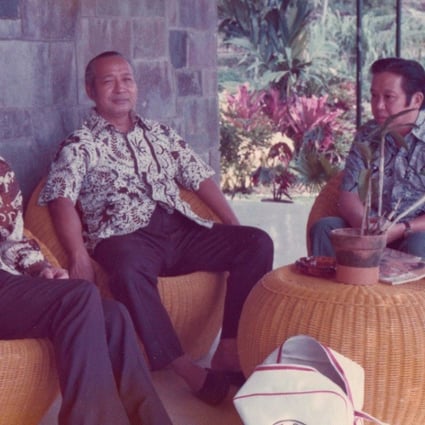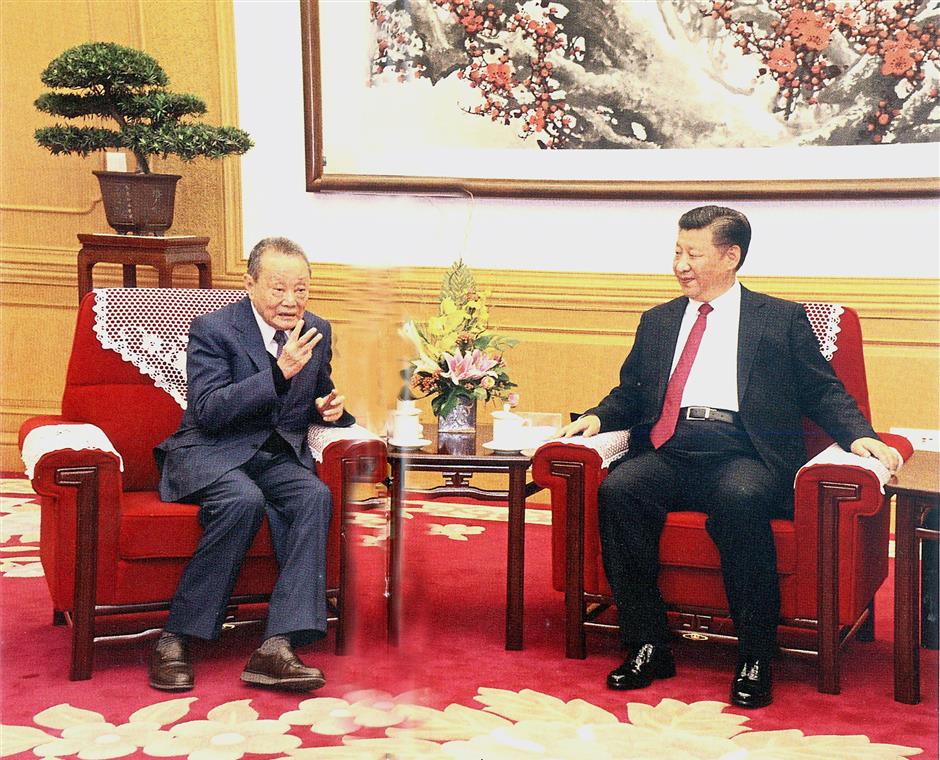Robert Kuok vs Jho Low: a tale of two contrasting businessmen
Malaysia Boleh! (which literally translates to “Malaysia Can!”), is a term used to express Malaysian national pride. It is often used to support national athletes or as a slogan for politicians claiming that the Malaysian people can do anything and achieve great things.

However, after decades of corruption and political policies intended to divide the country on race and religious grounds, the slogan is more often used to mock and deride the negatives of Malaysian politics and society.
Kuok was born on 6 October 1923, in Johor Bahru to a Malaysian Chinese family. Kuok's father Kuok Keng Kang arrived in Malaya from Fujian, China, at the beginning of the 20th century, and Robert was the youngest of three brothers born to Kuok Keng Kang and Robert's mother Zheng Ge Ru.He grew up speaking his parents' Fuzhou dialect, English and Japanese during Japan's wartime. That is, until now. In these memoirs, the 94-year-old Kuok tells the remarkable story of how, starting in British Colonial Malaya, he built a multi-industry, multinational business group. CHINESE -THE MOST AMAZING ECONOMIC ANTS ON EARTH: THE ROBERT KUOK MEMOIRS In the fourth extract of Robert Kuok's memoir, he considers Chinese immigrants. Not only are these unsung heroes hungry, eager and willing to 'eat bitterness'they have cultural strength in the marrow of their bones UNSUNG HEROESThe overseas Chinese made enormous contributions to Southeast Asia. But this legendary Overseas Chinese entrepreneur, commodities trader who made his first milion on the London sugar market, hotelier of the Shangri-la chain, and property mogul has maintained a low profile and seldom shed light in public on his business empire or personal life. That is, until now. In these memoirs, the 94-year-old Kuok tells the remarkable story of how, starting in British Colonial Malaya, he. We use cookies for a number of reasons, such as keeping FT Sites reliable and secure, personalising content and ads, providing social media features and to analyse how our Sites are used.

This brings me to two perfect examples of “Malaysia Boleh!”:
- Robert Kuok郭鹤年 (a.k.a. the Sugar King of Asia; born 1923), a Malaysian-Chinese businessman who survived the Japanese invasion of Malaya during World War II and against all odds, created a multi-billion dollar empire (the Kuok Group) that spans all across Asia. His recent memoirs detail his rise to become Malaysia’s richest person through hard work, honesty and integrity.
- Jho Low 刘特佐 (a.k.a the Asian Great Gatsby; born 1981), a Malaysian-Chinese “businessman” who stole billions from the Malaysian government, produced the Wolf of Wall Street film and had romantic links to celebrities like Paris Hilton & Miranda Kerr. His fortune built on cronyism, deceit and fraud represents the worst of human greed and capitalism.
I summarise their recent books below:
Billion Dollar Whale (Jho Low): The Man Who Fooled Wall Street, Hollywood, and the World
Written by Bradley Hope and Tom Wright, the book details how a young man emerged from obscurity and fooled auditors, banks, regulators, government officials and the rich and famous to pull off one of the greatest heists in history (estimated at $US4.5 billion) from the Malaysian people.
Between 2009 to 2019 Jho Low achieved the following:
- siphoning billions from the Malaysian sovereign wealth fund (1MDB) into his personal accounts to fund his lavish lifestyle. Goldman Sachs were in on it too.
- developing romantic relationships with Paris Hilton and Miranda Kerr.
- buying a US$250 million super-yacht on which he partied with celebrity friends such as Jamie Foxx, Busta Rhymes and Leonardo Di Caprio.
- financing the hit film, The Wolf of Wall Street (itself a story of excess) on a $US100 million budget.
I was amazed (and disappointed) to read how easily Jho Low managed to grease his way into higher society through a bit of flattery, showmanship and cronyism. Simple tactics like naming his shell companies after well-know companies (e.g. Blackrock), allowed him to safely siphon his cash.

Definitely worth the read, even if you have no interest in finance or Malaysian politics, as it’s a tale of human greed and hubris. Jho Low is currently in hiding, having recently acquired a Cypriot passport. The book also appears to be getting an movie adaptation, to be produced by Malaysian actress, Michelle Yeoh (Crazy Rich Asians and Crouching Tiger: Hidden Dragon)
Written by Andrew Tanzer and Robert Kuok, the book details life of the early days of Chinese diaspora in South East Asia, British colonialism, World War II, the rise of Asia and how Robert made his multi-billion dollar fortune.
Some key highlights:
- befriending people and conducting business all over the world (and even a brief encounter with North Korea). This is despite going through the brutal Japanese occupation and unjust British colonial system.
- making his initial fortune through trading sugar, controlling 80% of the Malaysian sugar market, earning him the nickname of the “Sugar King of Asia”.
- expanding to flour milling, palm oil, real estate and founding the Shangri-La Hotels and Resorts chain.
- going to mainland China in the 1980s to help it join the modern world after the Cultural Revolution. He financed the building of the World Trade Centre in Beijing and the refurbishment of the famous Hangzhou Hotel.
An amazing story from a man who embodies the values of modesty, integrity, discipline and humility. A worthwhile read for me, especially as the book brings to life how hard life must have been for my grandparent’s, who lived through similar circumstances in Malaysia.
Some of his quotes on:
British colonialism
Robert Kuok Memoir Chinese
- I despised the racism of the colonial rulers in Malaya and Singapore. I remember one firm – Harper Gilfillan – printed in words: ‘No receipt is valid unless signed by a European member of staff’ on its invoices.’
- They wore the mantle of the vastly superior race; their facial and body language was one of contempt, of utter disdain towards the natives.
- I think business should be approached with humility, whereas in America I see it being approached with arrogance, roughness and a near total lack of humanity. You almost have to become arrogant.
- Americans operate in the largest economy in the world, caressed by political and social stability…the overseas Chinese in Southeast Asia operate in a much less benevolent environment. Moreover, they flourish without the national, political and financial sponsorship or backing of their host countries.

- When I hire staff, I look for honest, hardworking, intelligent people…I do not look for MBAs or exceptional students. You may hire a brilliant man, summa cum laude, first-class honours, but if his mind is not a fair one or if he has a warped attitude in life, does brilliance really matter?
- Failure is the mother of success. But in the last 30 or more years of my business life, I have come to the conclusion that the reverse phrase is even truer of today’s world: success often breeds failure, because it makes you arrogant and incautious.
- The overseas Chinese made enormous contributions to Southeast Asia. They are the unsung heroes of the region: the poor men and women who migrated and blazed trails into the jungle.
- In Southeast Asia, the Chinese are often maltreated and looked down upon. Whether you go to Malaysia, Sumatra or Java, the locals call you Cina – pronounced Chee-na – in a derogatory way.
China
- China is still transforming. When you talk of the transformation of a nation of more than 1.36 billion people, it is too great for one single mind to follow. Imagine an elephant that is so enormous in in girth that if you are standing right in front, you cannot image it in its entirety.
- Mother warned me against investing in China…however, I saw that China was pitifully backward. I felt that the country must wake up and join the modern world. It was much poorer than the Malaya into which I was born.
The contrast between Jho Low and Robert Kuok could not be more stark, but yet they both represent the two sides of “Malaysia Boleh!” and the eras they were born in. Even if you have no connection to Southeast Asia, I highly recommend reading the books as their stories are really about human nature. Coincidentally both books were published in 2018.
Description
Robert Kuok Family Tree
Winner of Best Book of the Year at the Singapore Book Publishers Association awards 2018. Robert Kuok is one of the most highly respected businessmen in Asia. But this legendary Overseas Chinese entrepreneur, commodities trader, hotelier and property mogul has maintained a low profile and seldom shed light in public on his business empire or personal life. That is, until now. In these memoirs, the 94-year-old Kuok tells the remarkable story of how, starting in British Colonial Malaya, he built a multi-industry, multinational business group. In reflecting back on 75 years of conducting business, he offers management insights, discusses strategies and lessons learned, and relates his principles, philosophy, and moral code.
Kuok has lived through fascinating and often tumultuous times in Asia - from British colonialism to Japanese military occupation to post-colonial Southeast Asia and the dramatic rise of Asian economies, including, more recently, China. From his front-row seat and as an active participant, this keen, multi-cultural observer tells nearly a century of Asian history through his life and times. Readers interested in business, management, history, politics, culture and sociology will all enjoy Robert Kuok's unique and remarkable story.
